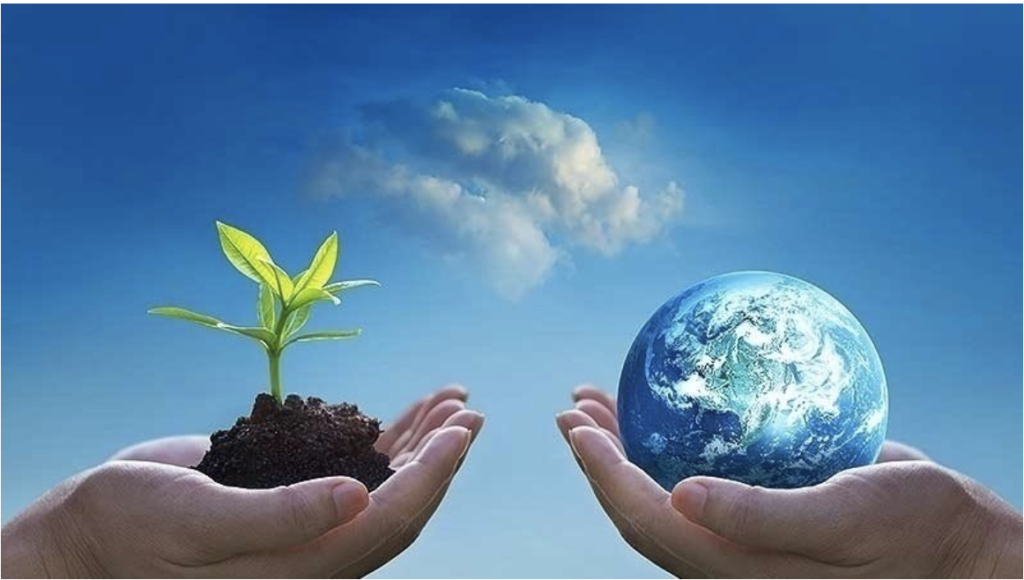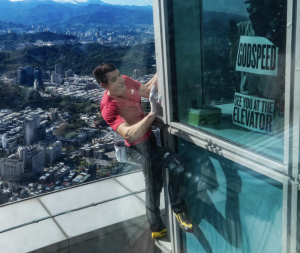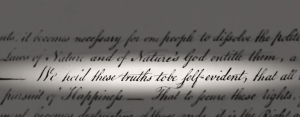A little more than three years ago I attended a New York Times conference in New Orleans focused on “Cities of Tomorrow”. One of the sessions I remember most was a discussion on climate change and its effect on our cities. One panelist mentioned by 2050 a major portion of cities like Miami, Florida, and New Orleans, Louisiana, would be underwater due to the climate crisis we are facing. If you go online and study this, you can see a number of references related to the threat in front of us in major cities around the world if we don’t change some of our fundamental behaviors.
I was reminded of this last month when vacationing with a long-time good friend, John Hartner. John has made making this world a cleaner, healthier and more sustainable place to live one of his life’s missions. As background, John is a proven leader in the manufacturing world and has led many publicly-listed companies. With the sale of his last company, today he is entirely focused on leveraging his industrial technology experience to drive sustainable outcomes for our planet. He has even gone back to graduate school to hone his knowledge in sustainable engineering and the circular economy. One small, but memorable part of our trip, was a distinct behavior John demonstrated. Simply, while we were all hydrating ourselves throughout the trip with plastic bottled water purchased at a general store next to our residence, John refrained. He brought along his own water bottle, and while not preaching nor being judgmental, he used this throughout the trip. Needless to say, John’s behavior influenced me.
In keeping with the spirit of the Monday Morning Mojo, John inspired me to feature some of the positivity coming from the environmental community. To begin with, I am sharing below a talk given by Chris Graves, my former boss and the Founder and President of the Ogilvy Center for Behavioral Science. Chris has been a climate change crusader, and much of his work focuses on the storytelling aspect of what we must do (the storytelling approach) to effect change. In fact, John’s behavior and his influence falls very much in line with a lot of the behavioral science research today about social norms and persuasion. From Chris’ talk below you will see he makes reference to such behavioral science concepts as the availability heuristic & concreteness effect, temporal discounting, the identifiable victim effect, loss aversion and identity.
There are thousands of things everyday people are doing to help improve the world we live in, everything from planting trees to recycling, from using nets to capture waste to just simply reducing waste. In fact, through aggressive recycling, and the adoption of public transportation in the mid-1990’s, I personally witnessed the city of Taipei transform and beautify itself.
Among the number of things we can do to help improve our environmental footprint, here are a few simple actions to consider:
- Reduce food waste*
- Turn off some of lights in rooms you are not using at home
- Walk or bike somewhere you would normally drive
- Use recyclable shopping bags
- Take shorter showers, or reuse your bath water for simple cleaning purposes
- Plant something
- Unplug appliances not being used or turn off your computer on occasion
- Randomly pick up some litter and help clean the environment surrounding you; or better yet, join a community clean up in your city
- Shop online
And thanks to John:
- Become aware of the carbon footprint created by the next flight you are taking, and compare this to other flights traveling the same course
- Bring your water bottle wherever you go!
One of the most positive aspects of the climate challenge we face is that cooperation and collaboration between the US and China are essential to nip this in the bud. The youth of both nations seem to be convinced, and given what was discussed at the United Nations Climate Change Conference in Glasgow last year, both countries have great ambition to improve the environmental state of the world.
A few other things to share.
*First, in the area of reducing food waste, this is #1 above because it is the biggest culprit. That’s because it takes so much energy and water to produce food, and we throw a stunning amount away. Apparently about one third of food goes to waste. Chris shared a wonderful resource, Project Drawdown, outlining many of the problems we face and solutions.
Chris also explained behavioral science is being used to get people to eat more healthily. He pointed out that getting consumers to consume more of a plant-based diet is key, but studies have found we often fail because we describe plant-based foods as healthy or good for the planet. Meanwhile, most people feel that if food is deemed “healthy” it must not taste good, so the World Resources Institute found how food is described makes all the difference. Check this out to see the role behavioral science is playing here.
Also, in terms of additional great resources, John suggested the Ellen MacArthur Foundation is doing wonderful work related to the circular economy. That link is here:
Next, as messages are brought into the mainstream about our climate crisis, I found this National Geographic video by word artist, Prince Ea, very inspiring and compelling:
Finally, I was listening to a podcast and the actor Hugh Jackman recommended the fiction book, The Overstory, by Richard Powers. This book has made it onto my “must read” list and is described as an ambitious environmental fable of nine main characters that explores our relationship with nature, the psychology of why we’re so bad at acting on climate change, our perception of time, the meaning of hope, and so much more.
Let me conclude by saying I am not naïve in focusing on mostly positive aspects of what is being done, as opposed to the real challenges we face. However, like what John did for me with the water bottle, I just feel accentuating the positive could help motivate our actions.
Thanks for reading. I hope you will join me in considering some of the options above to improve the world around us. Onwards and upwards.





Fantastic I had to take notes while reading!!!
Way back in the late ’40’s and early ’50’s, along with my siblings, the message from mom up front was don’t throw anything out the car window. As kids, we’d ride for long periods of time trying to spot refuge along side the road seeing which one of us spotted it first. Little did we know mom was teaching us a lifelong lesson.
Point of interest…just about the same time disposable diapers came to the marketplace I became a mother of twins. I got lots of well meaning input about time saving disposables from family and friends. Fortunately, I toughed it out with cloth diapers. To this day, I’m conscious (as are my twins and their older sister) of planet pollution; not to the extent of Chris Graves. But enough to feel pretty good about having tried to do my bit.
May I simply say what a relief to discover an individual who actually understands what theyre discussing online. You actually realize how to bring an issue to light and make it important. More people should check this out and understand this side of the story. I was surprised you arent more popular since you definitely have the gift.